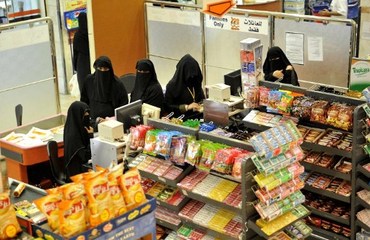São Paulo – Saudi Arabia is one of a dozen target markets for the next period of the sector project Brazilian Biscuits, Pasta and Industrialized Bread &Cakes, a partnership between the Brazilian Association of Industrialized Biscuit, Pasta and Bread & Cake Manufacturers (ABIMAPI) and the Brazilian Trade and Investments Promotion Agency (Apex-Brasil), which was renewed recently. For the 2017 to 2019 period, investments reach BRL 4.1 million (USD 1.33 million), up 34% over the investments made in the last contract, signed in 2015.
In all, there will be 20 actions including promotion, training and competitivity for exports to the eight priority countries and four secondary ones. The associations will also conduct market studies of these destinations – one of them is Saudi Arabia, according to Rodrigo Iglesias, ABIMAPI’s international director.
“We will take part in the Yummex, in Dubai [United Arab Emirates], but eyeing the whole region,” said the executive in an interview to ANBA. The Yummex Middle East is one of the main fairs of the cookies and snacks sector in the Middle East and will take place from September 18 to 20. According to the executive, four ABIMAPI members already confirmed their presence: Livre & Leve, Frutos da Amazônia, M. Dias Branco and Cory.
The presence at the Dubai fair was organized in a partnership with the Brazilian Cocoa, Chocolate, Peanut and Candy Manufacturers Association (ABICAB), also interested in the Yummex and the region.
Iglesias said that the project also includes the presence of Brazilian companies in Yummex’s next edition in 2018. In this case, the plans call for something bigger: organize a business mission to Riyadh and Jeddah, which would be the first from the sector to the country. “We want to hold a seminar, visit some points of sale and hold business matchmaking sessions with local purchasers. We have from eight to ten companies very interested in exploring the Saudi Arabia market,” he explained.
Before that, from April 5 to 7, Saudi buyers will be invited to take part in business matchmaking at the 16th edition of the International Congress of the Biscuit, Pasta, Bread & Cake Industries, to be held in Foz do Iguaçu (PR) in 2018. “Not only the Saudis will come, we want to bring others from the region,” said the executive, who told he’s relying on the collaboration from the Arab Brazilian Chamber of Commerce to identify some buyers.
ABIMAPI member companies will also take advantage of Gulfood, which takes place in February in Dubai, to search for and drive forward negotiations with Saudi Arabia entrepreneurs. “Our members have been interested in reaching this market for quite a while now. The notion is that Saudi Arabia is a close market, but it’s quite the contrary, the world’s large brands are there in the shelves of the country’s supermarkets, “ said Iglesias.
The executive also pointed out some challenges that Brazilian companies will face. The main one, according to him, is the distance: “Our main European competitors are closer, as are Turkey and India, two markets that compete directly with the Brazilian industry. In any case, these are challenges that can be overcome and the possibilities of developing this market are great,” he explained.
According to data from the Ministry of Development, Industry and Foreign Trade (MDIC) compiled by the Arab Chamber, exports from ABIMAPI’s members to Arab countries increased 16.5% from January to July when compared to the same period of 2016, reaching USD 3.5 million. To Saudi Arabia, the industry exported USD 1.65 million, up 170% in the period – the country is the largest market among the Arabs.
The sector project
Renewed recently, Brazilian Biscuits, Pasta and Industrialized Bread & Cakes will promote twenty actions in Saudi Arabia, Argentina, Chile, Colombia, Costa Rica, United States, Mexico and Portugal, which are part of the priority group, and in South Africa, Australia, China and Iran, the secondary markets.
In the year’s first half, 51 companies had the support of the ABIMAPI and Apex-Brasil partnership, and 21 of them sold abroad. According to ABIMAPI, the goal is to raise in 25% the sector’s exports from 2017 to 2019.
*Translated by Sérgio Kakitani




